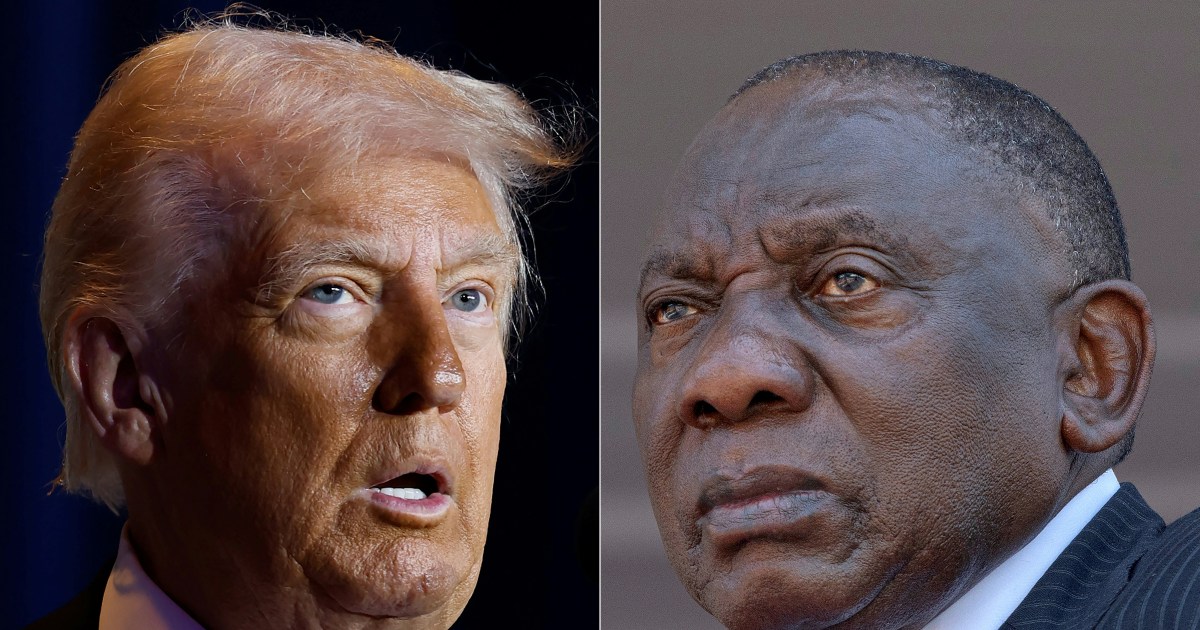Africa
Trump freezes aid to South Africa amid spat over land expropriation law

Understanding the U.S.-South Africa Rift Over Land Expropriation
Historical Context and the Land Question in South Africa
The recent tensions between the United States and South Africa stem from a deeply rooted issue: land ownership and the legacy of apartheid. For decades, South Africa was governed under a system of institutionalized racial segregation that denied Black citizens access to land, resources, and political power. When apartheid officially ended in 1994, the country inherited a stark inequality in land distribution. Today, Black South Africans, who make up over 80% of the population, own just 4% of privately held farmland, while white South Africans, who constitute about 7% of the population, hold approximately 75% of the land.
To address this disparity, South African President Cyril Ramaphosa signed the Expropriation Act in 2023. The law aims to allow the government to seize land without compensation in cases where it is deemed "just and equitable and in the public interest." Proponents argue that this is a necessary step to redress the historical injustices of apartheid and ensure a more equitable distribution of land. However, critics, including former U.S. President Donald Trump, have lambasted the law, accusing the South African government of violating property rights and targeting ethnic minorities, particularly the Afrikaner community.
Trump’s Stance and the Freezing of U.S. Aid
In response to the Expropriation Act, Trump issued an executive order freezing U.S. aid to South Africa. The move escalated tensions between the two nations and marked a significant shift in U.S.-South Africa relations. Trump described the law as a "shocking disregard" for citizens’ rights, asserting that it would allow the government to seize land from Afrikaners without compensation. He also accused South Africa of promoting "racially disfavored" violence against landowners and criticized the country for its foreign policy decisions, including its stance on Israel and its relations with Iran.
Trump’s order further stated that the U.S. would promote the resettlement of Afrikaners "escaping government-sponsored race-based discrimination," highlighting his administration’s alignment with the concerns of the Afrikaner community. The decision to freeze aid was part of a broader trend under Trump’s presidency, which saw a reduction in U.S. foreign assistance globally, including the dismantling of the U.S. Agency for International Development (USAID). In 2023 alone, Washington had allocated approximately $440 million in aid to South Africa, funds that are now in jeopardy.
Ramaphosa’s Defense and the Domestic Debate
President Ramaphosa has defended the Expropriation Act as a "constitutionally mandated legal process" aimed at ensuring public access to land in an equitable and just manner. In a parliamentary address, he emphasized that South Africa would not be "bullied" or deterred from pursuing its goals, framing the land reform initiative as a matter of national unity and sovereignty. Ramaphosa and his ruling African National Congress (ANC) argue that the law is essential for addressing the economic and social disparities created by apartheid.
However, the law has faced criticism not only from Trump but also from within South Africa. The Democratic Alliance (DA), the country’s largest opposition party, has warned that the Expropriation Act could undermine property rights and deter much-needed foreign investment. The DA, which draws significant support from white, Indian, and multiracial South Africans, has denied claims that the law allows for arbitrary land seizures, stressing that such actions would violate the constitution. Despite the controversy, no land has yet been expropriated under the new law, and the government has emphasized that it will follow legal procedures to ensure fairness.
The Escalating War of Words and Diplomatic Fallout
The dispute over the Expropriation Act has led to an escalating war of words between Trump and Ramaphosa. Trump first criticized the law in a public statement, accusing the South African government of "confiscating land" and mistreating "certain classes of people." Ramaphosa responded with a strongly worded address to parliament, asserting South Africa’s independence and resilience in the face of external pressure.
The diplomatic fallout has extended beyond the two leaders. U.S. Secretary of State Marco Rubio announced that he would skip the upcoming G20 talks in Johannesburg, citing the Expropriation Act and other "very bad things" happening in South Africa. This move reflects a broader U.S. disapproval of South Africa’s policies, including its stance on international issues such as the Israeli-Palestinian conflict. South Africa has accused Israel of genocide at the International Court of Justice, a position that has drawn sharp criticism from Washington.
The Broader Implications of the U.S.-South Africa Rift
The tensions between the U.S. and South Africa over land reform highlight a deeper clash of values and priorities. For South Africa, the Expropriation Act represents a critical step toward addressing the lingering inequalities of apartheid and promoting economic inclusivity. For the U.S., under Trump’s leadership, the law is seen as a violation of property rights and an attack on ethnic minorities, warranting a reevaluation of its assistance to the country.
The freezing of U.S. aid has significant implications for South Africa, which relies on international support for development and security initiatives. However, Ramaphosa’s steadfast defense of the law suggests that South Africa is willing to withstand external pressure to pursue its domestic priorities. The rift also raises questions about the future of U.S.-South Africa relations and the extent to which the Biden administration, or future U.S. leadership, may revisit Trump’s policies.
In the broader context, the land expropriation debate underscores the challenges of post-colonial reconciliation and the complex interplay of race, economics, and politics in











